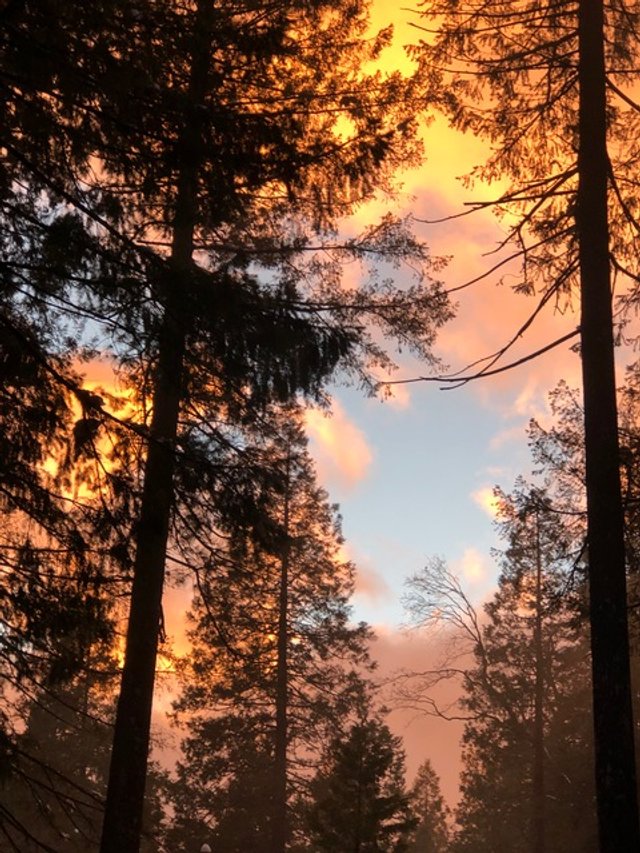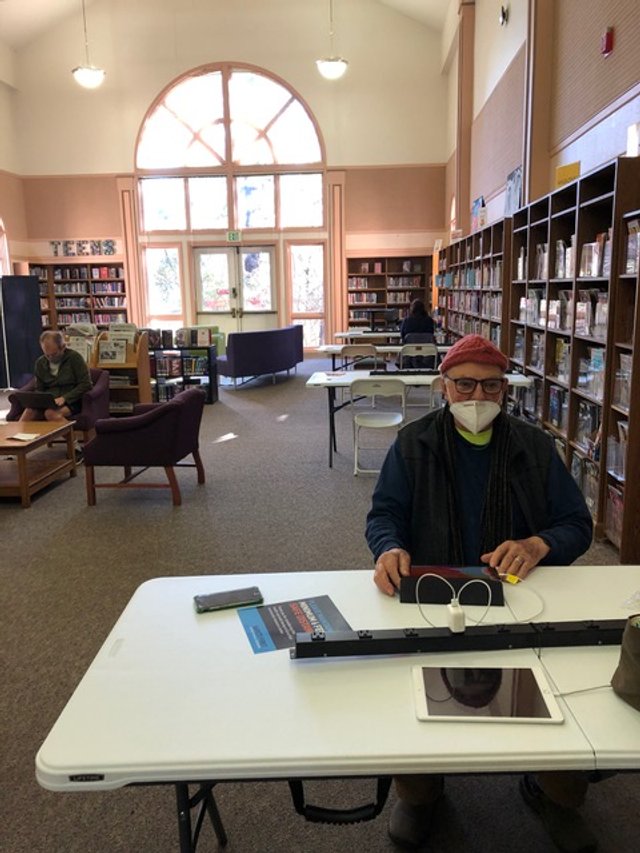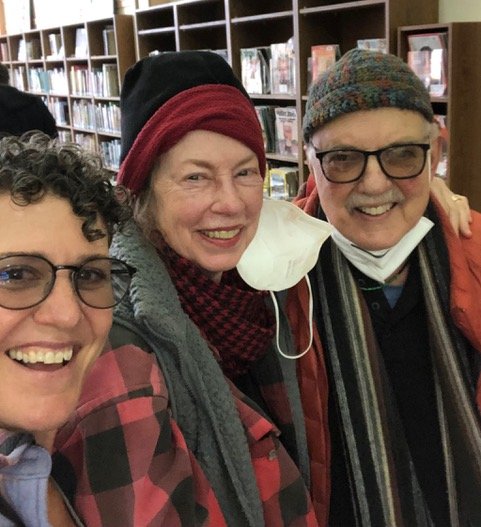The Sound of Silence
Silence is a sound that comes with living in a forested world above the snowline. For me, it is an old friend I’ve lived with happily in prior chapters of my life. It is a state of mind I enter when I write. A saltwater pool in which I lose myself when divisive politics is too much with me. A place in the forest where I walk alone, bathing in sounds spoken by trees and mosses—the conversations in nature that lie beneath the noise of the world. While welcomed by some, silence can at times be disquieting and isolating for those hungry for the social buzz of conversation in a coffee shop or a bustling restaurant.
At the onset of a recent record-breaking power outage almost three weeks ago in Nevada County, the normalcy of silence along our road was replaced by the steady drone of gas-fueled portable generators large and small, that run with the pull of a choke cord. The collective sound of generators plugged into homes up and down our road was a comfort during those dark days when over three feet of snow piled up around us. They powered lights, kept our homes warm and refrigerators cold, and filled what turned into an isolating silence as the outage continued into week two with no assurance from PG&E text alerts that it would end any time soon.
Then one afternoon 10 days into the county-wide power outage, we found ourselves once suddenly back on the grid. Generators in the upper part of our road were silenced, lights were turned back on, heat filled air vents beyond the immediate vicinity our gas fireplace, and once again the oven, washer and dryer worked. Almost immediately a powerful sense of normalcy began making its way back into the crisp, chill air for half of the residents of our road. For those still not back on the grid, generators continue to hum steadily as firewood and propane levels have begun to run dangerously low.
During what for us was a 10-day power outage, we did without our washer and dryer, disposal, bathroom lights, power operated garage door opener, oven, porch and garage lights, ceiling fans, computers, cable TV, phone, newspaper, or mail deliveries. Our world was reduced to the two of us and our immediate neighbors up and down our road. And while there was the sound of generators running, there was also the sound of silence that comes with suddenly being cut off from the outside world.
After a week of uncertain light and warmth, we’d begun to crave contact with others. When an emergency warming center was organized at our local Nevada County Library, Kit and I began joining our daughter Heidi for companionship as well as worktime on our laptops, iPads, and iPhones. We shared one of the socially distanced folding tables set up around the room and plugged our various devices into a power strip provided at each table. After logging into the library’s free Wi-Fi network, we were able to download emails and news, and communicate for the first time in days with family and friends. And each morning, Caroline’s Coffee Roasters in Grass Valley provided free hot coffee for all.
Known as the Madelyn Helling Library, this lovely community resource is situated next to a woods and a walking trail that connects it to downtown Nevada City. On the back wall, a high arching window allows an abundance of natural light to pour in, offering warm comfort to the visitors who spend quiet hours in cozy reading chairs spaced here and there or browsing the bookshelves in its high-ceilinged open rooms.
Near the library, we pass the Rood Government Center where a free mobile laundry and shower unit is available for residents who still don’t have power to come and use these services. There are also firewood distribution locations across Nevada County and nearby Grass Valley to make firewood pick-ups available to residents using firewood stoves for home heating. And there is also information on accessing propane for those whose tanks are running low.
Now that the road is clear of ice, Kit and I have resumed our daily afternoon walks. We stop and visit with neighbors out walking their dogs, and we get the latest word-of-mouth news of the slowly thawing world beyond our driveway—one that until a week ago was an icy accident ready to happen. Gradually temperatures have begun to rise, rain has replaced snowfall, the sun has begun to melt the icy surface of our driveway, and the peaks of snow 6 feet high compacted at the margins of the road by snowplows are gradually shrinking like a sad snowman back into the soil. Each day when we venture out, the narrow foothill roads to and from town appear wider, save for places where fallen or trimmed tree branches lie in tidy stacks at their edges, awaiting removal by crews that have been working long hours each day to bring light and power back to customers across the county.
As Kit and I sit in the living room these post-power-outage nights, we continue to keep lamps on low and use our battery powered ambient candles while sharing conversations in front of our gas-powered fireplace. Memories of a journey I made on a Greyhound bus in the days before cell phones and GPS, back when flying was not yet the norm. I was traveling from the east coast to my parents’ home in Omaha, NE when the bus lost visibility in a blinding snowstorm that seemed to come out of nowhere. The driver pulled off the interstate somewhere I’ve long forgotten and stopped at a motel near the exit. Isolated but undaunted, the driver and all the passengers spent a long, cold night sleeping as best we could around the lobby floor and sharing stories with our fellow passengers who just hours earlier had been total strangers.
As with nature’s circadian cycle of the seasons that bring months of extended darkness over the winter months, animals and people as well hibernate, nap more, and listen to the sounds of silence. With the approach of spring, we gradually experience a return to longer hours of light. Winter silence is replaced by a riot of sounds that remind us we are alive. As in nature, long periods of silence and darkness caused by acts of nature feel daunting, yet we endure and carry on—stronger for having weathered the storm with helping and with the help of others.




